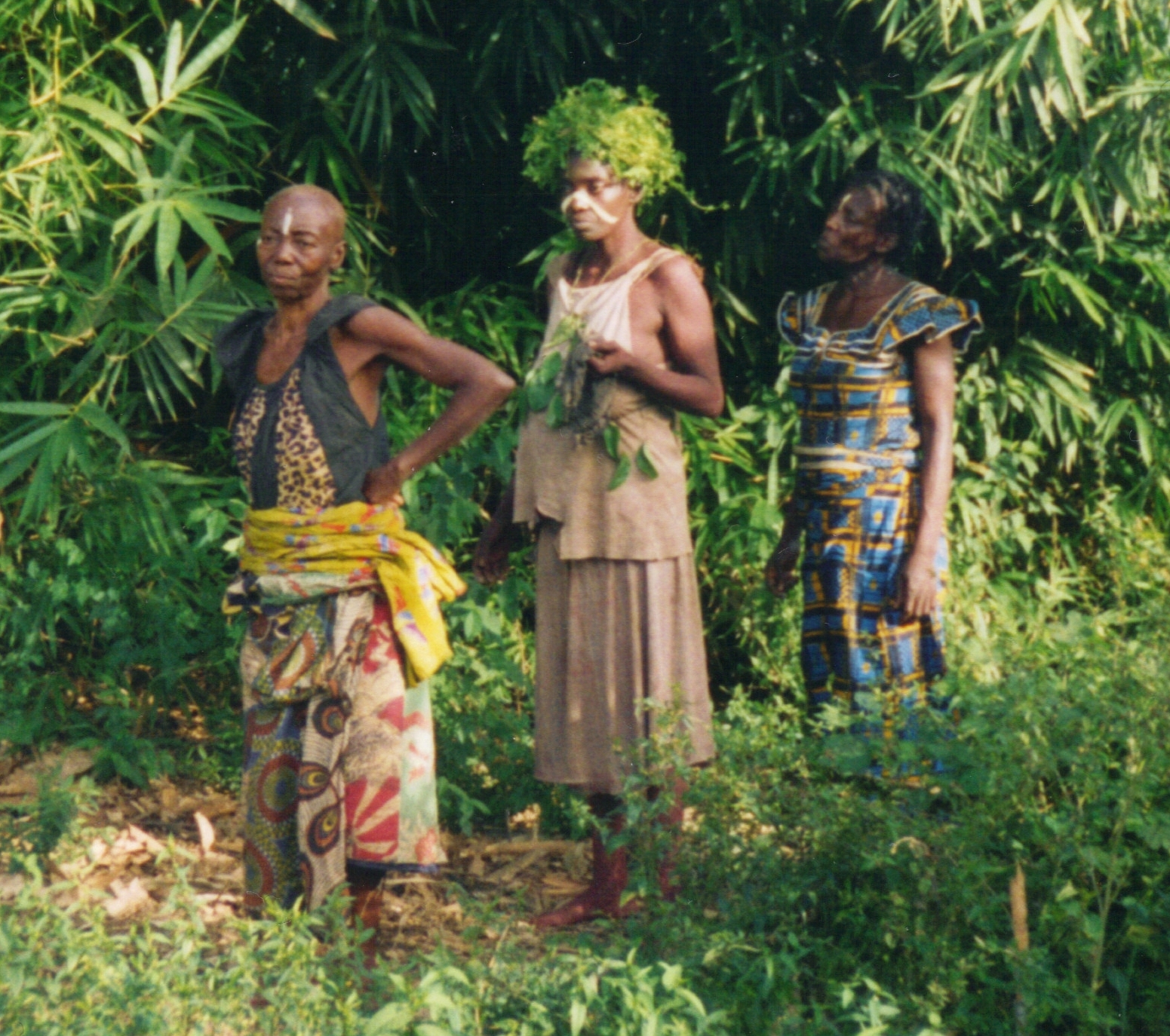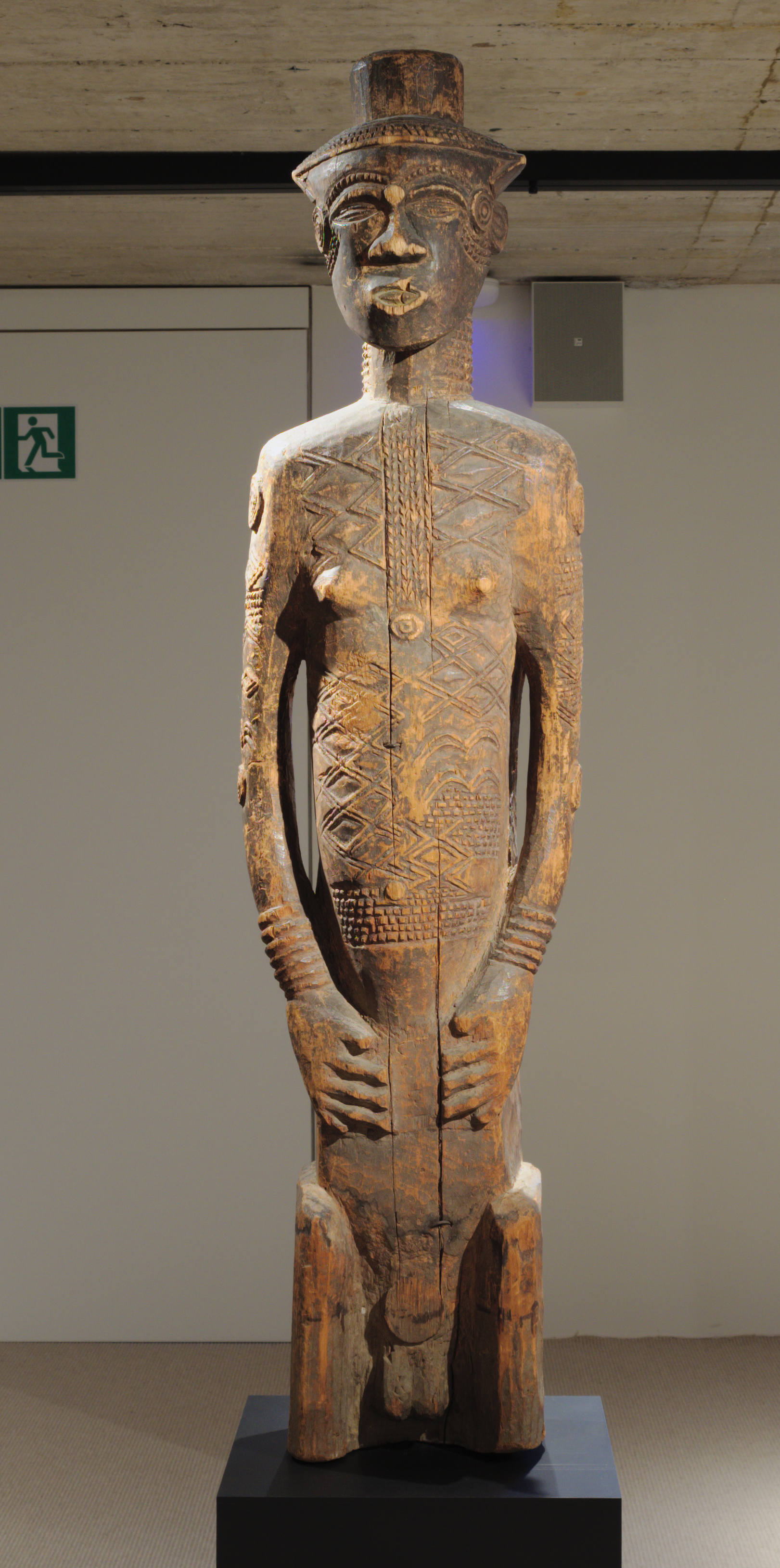|
Mongo People
__NOTOC__ The Mongo people are an ethnic group who live in the equatorial forest of Central Africa. They are the second largest ethnic group in the Democratic Republic of Congo, highly influential in its north region. A diverse collection of sub-ethnic groups, they are mostly residents of a region north of the Kasai and the Sankuru Rivers, south of the main Congo River bend and many other provinces.Mongo people Encyclopædia Britannica Their highest presence is in the province of Équateur and the northern parts of the . [...More Info...] [...Related Items...] OR: [Wikipedia] [Google] [Baidu] |
Équateur (former Province)
Équateur (French for "Equator") was a province in the northwest of the Belgian Congo and the successor Republic of the Congo, now known as Democratic Republic of the Congo. It had its origins in the Équateur District of the Congo Free State, the private property of King Leopold II of Belgium. It was upgraded to the status of a province in 1917. Between 1933 and 1947 it was named Coquilhatville. In 1962 it was divided into three smaller provinces, but there were recombined in 1966. Équateur was one of the eleven provinces of the Democratic Republic of the Congo until 2015, when it was split into the new, smaller Équateur province, as well as the Tshuapa, Mongala, Nord-Ubangi and Sud-Ubangi provinces. Located in the north of the country, the province bordered the Republic of the Congo to the west, the Central African Republic to the north, to the east the Orientale province, and to the south the Kasai-Oriental, Kasai-Occidental, and Bandundu provinces. The word "Équa ... [...More Info...] [...Related Items...] OR: [Wikipedia] [Google] [Baidu] |
Mbole People
The Mbole people are an ethnic group of about 150,000 people living in the Orientale Province, southwest of Kisangani in the Democratic Republic of the Congo. The Mbole were previously referred to as Bambole. Origins The Mbole language belongs to the Mongo group of Bantu languages. The Mbole culture is close to that of the Mongo people and related to those of the Yela and Pere peoples. They live in the equatorial forest on both sides of the Lomami River. They once lived to the north of the Congo River. They crossed this river upstream from the point where the Lomami joins the Congo, near present-day Basoko, and then moved south to their present location. They split into five smaller groups in the 18th century due to pressure from the Bombesa people. During the colonial era of the Belgian Congo, the Mbole were active in attacking the colonial factories in Lokilo. They called the Belgians ''atama-atama'', or slave traders, and made no distinction between the Belgians and the ea ... [...More Info...] [...Related Items...] OR: [Wikipedia] [Google] [Baidu] |
Zebola
Zebola, also, Jebola, is a women's spirit possession dance ritual practised by certain ethnic groups of the Democratic Republic of the Congo. It is believed to have therapeutic qualities and has been noted in the West as a traditional form of psychotherapy. It originated among the Mongo people __NOTOC__ The Mongo people are an ethnic group who live in the equatorial forest of Central Africa. They are the second largest ethnic group in the Democratic Republic of Congo, highly influential in its north region. A diverse collection of sub- ... but is also practised among various ethnic groups in Kinshasa. References Religion in the Democratic Republic of the Congo Dance therapy Spirit possession {{Africa-myth-stub ... [...More Info...] [...Related Items...] OR: [Wikipedia] [Google] [Baidu] |
Slavery In Africa
Slavery has historically been widespread in Africa. Systems of servitude and slavery were common in parts of Africa in ancient times, as they were in much of the rest of the ancient world. When the trans-Saharan slave trade, Indian Ocean slave trade and Atlantic slave trade (which started in the 16th century) began, many of the pre-existing local African slave systems began supplying captives for slave markets outside Africa. Slavery in contemporary Africa is still practiced despite it being illegal. In the relevant literature African slavery is categorized into indigenous slavery and export slavery, depending on whether or not slaves were traded beyond the continent. Slavery in historical Africa was practised in many different forms: Debt slavery, enslavement of war captives, military slavery, slavery for prostitution, and enslavement of criminals were all practised in various parts of Africa. Slavery for domestic and court purposes was widespread throughout Africa. Planta ... [...More Info...] [...Related Items...] OR: [Wikipedia] [Google] [Baidu] |
Belgian Colonial Empire
Belgium controlled several territories and concessions during the colonial era, principally the Belgian Congo (modern DRC) from 1908 to 1960 and Ruanda-Urundi (modern Rwanda and Burundi) from 1922 to 1962. It also had small concessions in Guatemala (1843–1854) and in China (1902–1931) and was a co-administrator of the Tangier International Zone in Morocco. Roughly 98% of Belgium's overseas territory was just one colony (about 76 times larger than Belgium itself) – known as the Belgian Congo. The colony was founded in 1908 following the transfer of sovereignty from the Congo Free State, which was the personal property of Belgium's king, Leopold II. The violence used by Free State officials against indigenous Congolese and the ruthless system of economic extraction had led to intense diplomatic pressure on Belgium to take official control of the country. Belgian rule in the Congo was based on the "colonial trinity" (''trinité coloniale'') of state, missionary and priv ... [...More Info...] [...Related Items...] OR: [Wikipedia] [Google] [Baidu] |
Jupiter Bokondji
Jupiter Bokondji (born 1965) is a musician from Kinshasa, Democratic Republic of Congo (DRC). He and his band, Okwess International, released their first album, ''Hotel Univers'', in May 2013 in the United Kingdom. The band was created in 1990, and they toured the African continent. However, at the same time that their popularity grew, a civil war broke out in the Democratic Republic of Congo. Some band members fled to Europe to escape violence, but Bokondji stayed in Kinshasa. As the war died down, his popularity grew again, and in 2006 he was featured in the documentary ''Jupiter's Dance''. This brought him to the attention of U.K. producers and musicians, which led to him joining the African Express tour, the production of ''Hotel Univers'', and performing at the 2013 Glastonbury Festival.Paul MacInnes, Harriet Gibsone, Paul Lester and Caspar Llewellyn SmithFuture Glastonbury festival headliners: which bands are making the most noiseThe Guardian, 24 June 2013. Bokondji's soun ... [...More Info...] [...Related Items...] OR: [Wikipedia] [Google] [Baidu] |
Oral Tradition
Oral tradition, or oral lore, is a form of human communication wherein knowledge, art, ideas and cultural material is received, preserved, and transmitted orally from one generation to another. Vansina, Jan: ''Oral Tradition as History'' (1985), reported statements from present generation which "specifies that the message must be oral statements spoken, sung or called out on musical instruments only"; "There must be transmission by word of mouth over at least a generation". He points out, "Our definition is a working definition for the use of historians. Sociologists, linguists or scholars of the verbal arts propose their own, which in, e.g., sociology, stresses common knowledge. In linguistics, features that distinguish the language from common dialogue (linguists), and in the verbal arts features of form and content that define art (folklorists)."Ki-Zerbo, Joseph: "Methodology and African Prehistory", 1990, ''UNESCO International Scientific Committee for the Drafting of a Gene ... [...More Info...] [...Related Items...] OR: [Wikipedia] [Google] [Baidu] |
Zanzibar
Zanzibar (; ; ) is an insular semi-autonomous province which united with Tanganyika in 1964 to form the United Republic of Tanzania. It is an archipelago in the Indian Ocean, off the coast of the mainland, and consists of many small islands and two large ones: Unguja (the main island, referred to informally as Zanzibar) and Pemba Island. The capital is Zanzibar City, located on the island of Unguja. Its historic centre, Stone Town, is a World Heritage Site. Zanzibar's main industries are spices, raffia and tourism. In particular, the islands produce cloves, nutmeg, cinnamon, and black pepper. For this reason, the Zanzibar Archipelago, together with Tanzania's Mafia Island, are sometimes referred to locally as the "Spice Islands". Tourism in Zanzibar is a more recent activity, driven by government promotion that caused an increase from 19,000 tourists in 1985, to 376,000 in 2016. The islands are accessible via 5 ports and the Abeid Amani Karume International Airp ... [...More Info...] [...Related Items...] OR: [Wikipedia] [Google] [Baidu] |
Wongo Language
Wongo is a Bantu language The Bantu languages (English: , Proto-Bantu: *bantĘŠĚ€) are a large family of languages spoken by the Bantu people of Central, Southern, Eastern africa and Southeast Africa. They form the largest branch of the Southern Bantoid languages. T ... in Kasai-Occidental Province, Democratic Republic of the Congo. References Languages of the Democratic Republic of the Congo Bushoong languages {{Bantu-lang-stub ... [...More Info...] [...Related Items...] OR: [Wikipedia] [Google] [Baidu] |
Lokele
The Kele people (or Lokele) are a Bantu ethnic group of about 160,000 people, in the Democratic Republic of the Congo. They mainly live on the south bank of the Congo River between Kisangani and Isangi. The New Testament The New Testament grc, Ἡ Καινὴ Διαθήκη, transl. ; la, Novum Testamentum. (NT) is the second division of the Christian biblical canon. It discusses the teachings and person of Jesus, as well as events in first-century Christ ... was first published in their Kele language in 1918. Drum language The Kele were known for their drum language, described by the English missionary John F. Carrington, who spent his life in Africa. His findings were published in his 1949 book ''The Talking Drums of Africa''. The Kele people used drum language for rapid communication between villages. Each village had an expert drummer, and all villagers could understand the drum language. Carrington studied the drum language at a time when it was already falling ... [...More Info...] [...Related Items...] OR: [Wikipedia] [Google] [Baidu] |
Tetela Language
Tetela (Otetela, Kitetela, Kikitatela), also ''Sungu'', is a Bantu language of northern Kasai-Oriental Province, Democratic Republic of the Congo. It is spoken by the Tetela people. Noun classes Like other Bantu languages, Tetela grammar arranges nouns into a number of classes. The ancestral system had 22 classes (counting singular and plural as distinct according to the Meinhof system), with most Bantu languages sharing at least ten of them. :: References Relevant literature * Elysee Meta Okubo. 2016. ''A COLLECTION OF 100 TETELA PROVERBS.'Proverb website* Mukanga, Ndjeka Elizabeth, Empenge Albert Shefu, Ambaye Albertine Tshefu. 2020. ''Great Collection of Tetela Proverbs on the African Wisdom''. Pittsburgh: Dorrance Publishers. 83 proverbs, 107 pages 83 may refer to: * 83 (number) * ''83'' (film), a 2021 Indian cricket film * one of the years 83 BC, AD 83, 1983, 2083 * "83", a song by John Mayer on his 2001 album '' Room for Squares'' See also * * List of highways ... [...More Info...] [...Related Items...] OR: [Wikipedia] [Google] [Baidu] |
Dengese
The Dengese, also known as the Ndengese, are an ethnic group from Democratic Republic of the Congo. They speak Bondengese and Lingala Lingala (Ngala) (Lingala: ''Lingála'') is a Bantu language spoken in the northwest of the Democratic Republic of the Congo, the northern half of the Republic of the Congo, in their capitals, Kinshasa and Brazzaville, and to a lesser degree .... External links The Dengese of the Democratic Republic of the Congo Ethnic ... [...More Info...] [...Related Items...] OR: [Wikipedia] [Google] [Baidu] |





